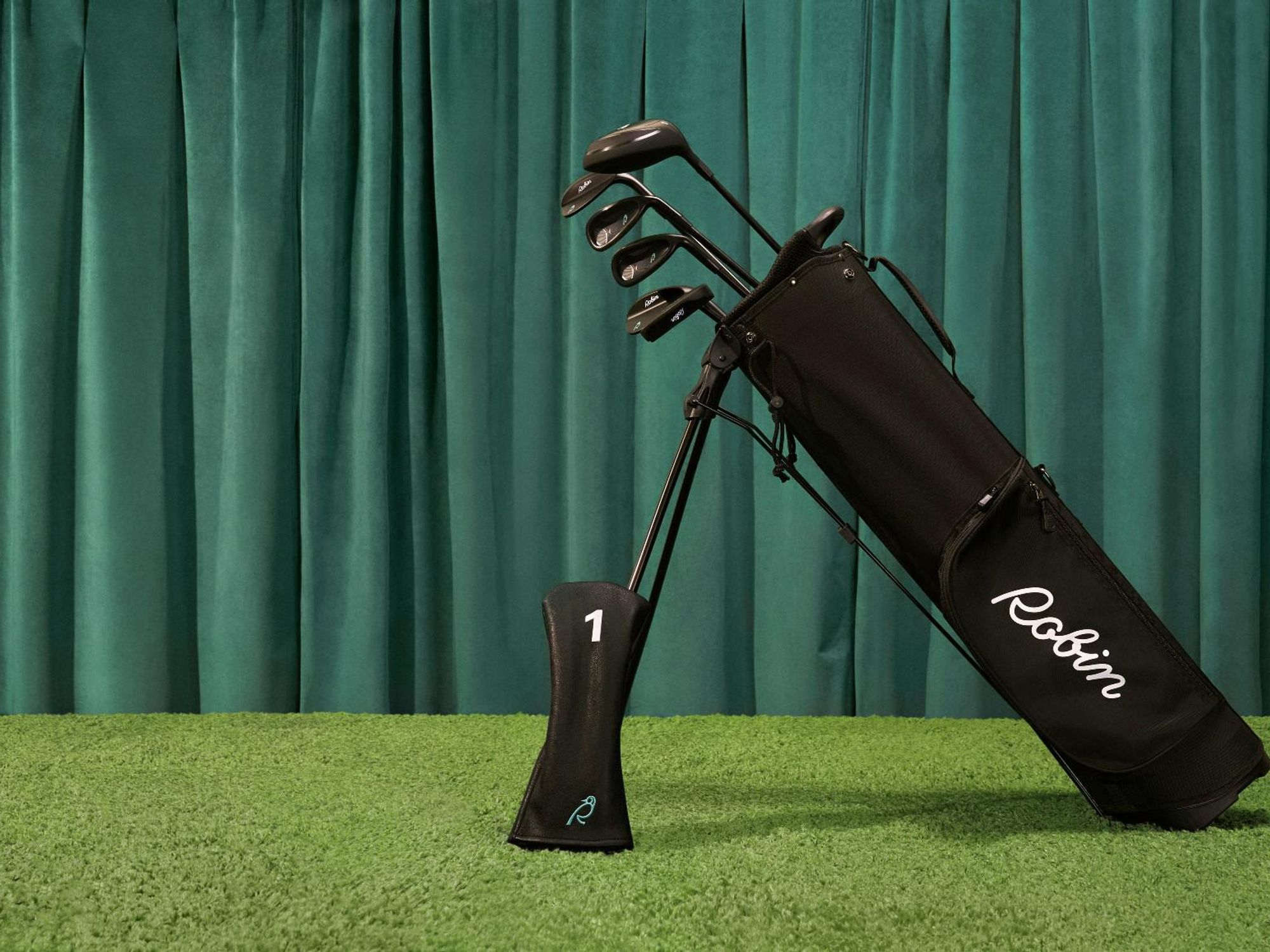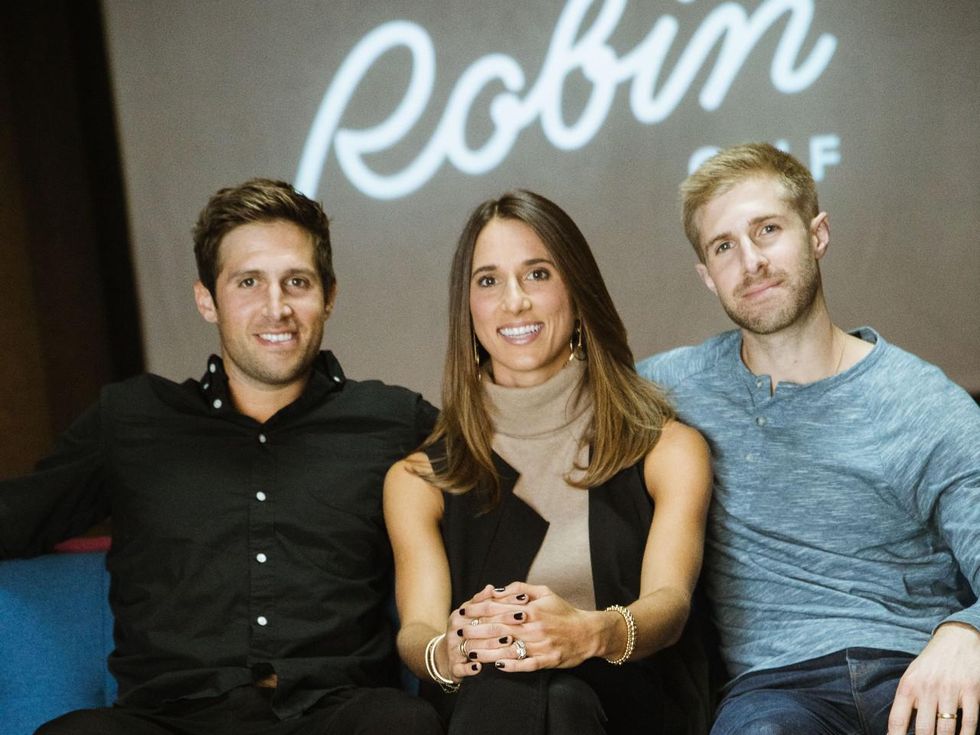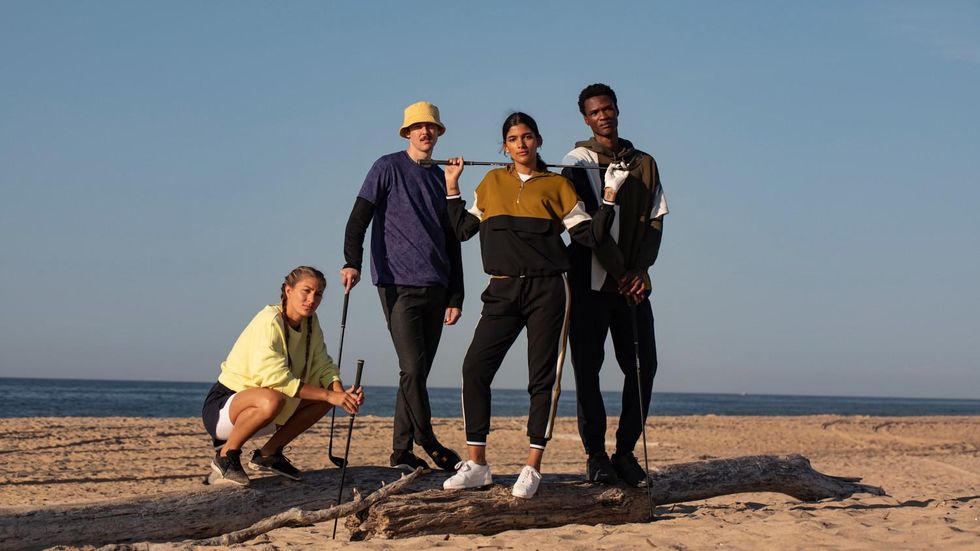The Golf Industry Had a Banner Year During the Pandemic. Robin Golf Hopes to Add Diversity to the Sport.
Favot is an award-winning journalist and adjunct instructor at USC's Annenberg School for Communication and Journalism. She previously was an investigative and data reporter at national education news site The 74 and local news site LA School Report. She's also worked at the Los Angeles Daily News. She was a Livingston Award finalist in 2011 and holds a Master's degree in journalism from Boston University and BA from the University of Windsor in Ontario, Canada.

Ali Marler and her brother-in-law Peter Marler found themselves in a pro golf shop, intimidated and out of place as they tested their swings, feeling as though they were being judged by staff and more experienced golfers in the store.
"For a golf novice, it is the scariest place you'll ever step foot into," Ali said.
For Peter, there were hundreds of clubs to choose from, while Ali was directed to a back corner that had only a few options of pink and purple clubs, one named "Azalea."
"I felt so put into this bucket of 'you're a girl, here's what you golf with and this is all you get'," she said.
It was the beginning of a business venture dedicated to creating a direct-to-consumer golf club company with an eye on increasing diversity in the mostly white male sport that drives the $84 billion industry.

They teamed up with Ali's husband and Peter's brother, Andrew Marler, a more experienced golfer who played in college, and launched a Kickstarter campaign in 2019 that raised $32,000. Robin Golf went online in March.
Then a global pandemic effectively halted the economy. The Marlers worried about the viability of the company.
"What we didn't realize is come May — once golf courses were deemed socially distanced approved — the golf industry would have its record year in its 1,000 year history," Andrew said.
Golf playing was up almost 100%, golf equipment sales were up 30% and there has been a record number of new golfers entering the sport, even more than when Tiger Woods became a professional, he said.
Those new golfers needed clubs. They sold out their inventory in two months and saw a 900% increase in sales from April to May.
And they've raised $1 million through angel investors, including dot.LA co-founder Spencer Rascoff, recently turning down a term sheet from an institutional venture capitalist. The company said ultimately their "visions were misaligned," and that they're not focused on the hyper growth approach the VC was looking for.
Driven by how Ali and Peter felt at the golf shop that day, the L.A.-based ecommerce startup has marketed its clubs to beginners, women and a diverse and inclusive audience to make it easier to enter the golf world, typically dominated by affluent, white men.
The fastest selling club is the female set. Of Robin's customers, 45% are women or kids. Those groups make up just 5% of sales industrywide.
While the major golf equipment companies, such as Callaway or TaylorMade, are targeting the 7 million avid or skilled golfers in the U.S., Robin Golf is marketing to the 27 million casual or beginner golfers, Andrew said.
For an example of just how intolerant golf can be, Peter pointed to pro golfer Justin Thomas' recent use of an anti-gay slur under his breath when he missed a putt at a tournament.
"Golf has a long way to go in terms of embracing diversity," Peter said.
He also recalled how he and Andrew were playing with a "major golf influencer," when Peter mentioned his husband in conversation.
The golfer said, "Oh, I'm sorry I didn't realize gay people golfed," Peter said.
"It's very personal to us in terms of creating sort of new communities, new accessibilities for people who previously felt as though golf was not for them," he said.
Lane Demas, a history professor at Central Michigan University and the author of "Game of Privilege: An African American History of Golf," said, there are "many barriers to expanding golf participation."
Among them: Many neighborhoods don't have golf courses nearby, while urban golf courses often charge high green fees and there is a lack of golf programs in K-12 schools that serve predominantly non-white students, Demas said.
Often, the golf tradition is passed down by family members, making it harder for novices to enter the sport, he added.
And while Robin Golf clubs are not as well-known as some of the bigger brands, they are much cheaper. The clubs are sold as a set rather than individually. The men's and women's set cost $699 each. A junior set sells for $259.
Cognizant that people may be hesitant to buy clubs online, Robin has a generous return policy, giving customers 90 days to test out their clubs. They describe the business model as the Warby Parker or Casper mattresses for golf, a direct-to-consumer business with products sold online. They've found that many millennials prefer to buy things online and golf clubs are no different.
This year, Robin Golf wants to expand into selling golf balls and accessories as well as apparel, allowing first-time golfers to purchase everything they need before they step onto the links.
These days on the course, Peter feels less intimidated and Ali now enjoys the game on vacation — with three rules: Always have a drink in hand, it's okay to stop if you're frustrated and remember that no one else is looking at you.
Favot is an award-winning journalist and adjunct instructor at USC's Annenberg School for Communication and Journalism. She previously was an investigative and data reporter at national education news site The 74 and local news site LA School Report. She's also worked at the Los Angeles Daily News. She was a Livingston Award finalist in 2011 and holds a Master's degree in journalism from Boston University and BA from the University of Windsor in Ontario, Canada.






 Image Source: Skyryse
Image Source: Skyryse